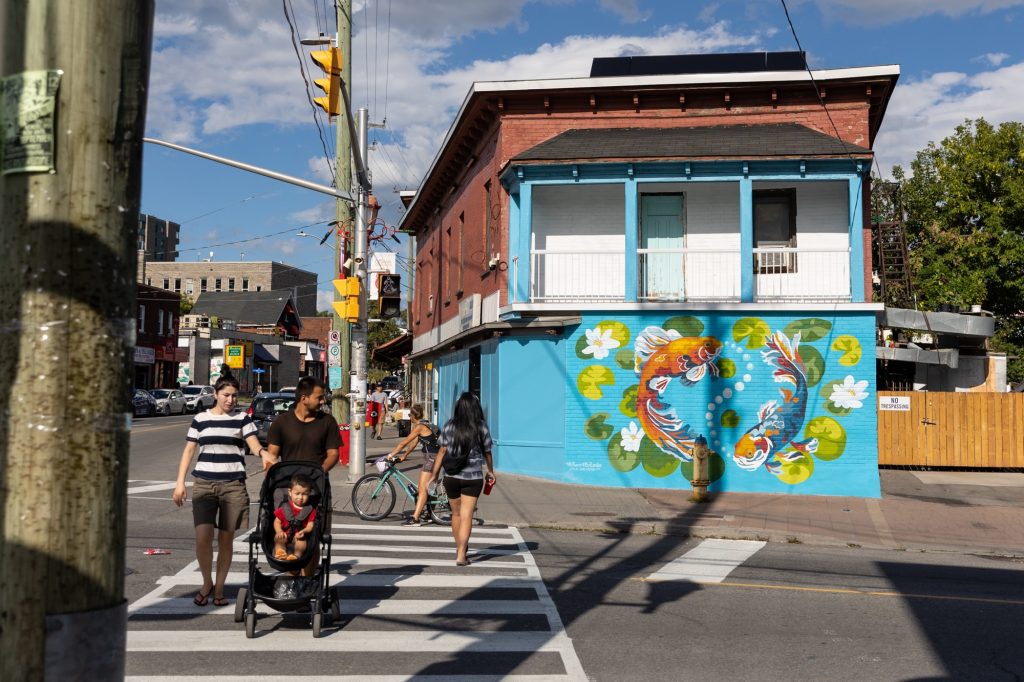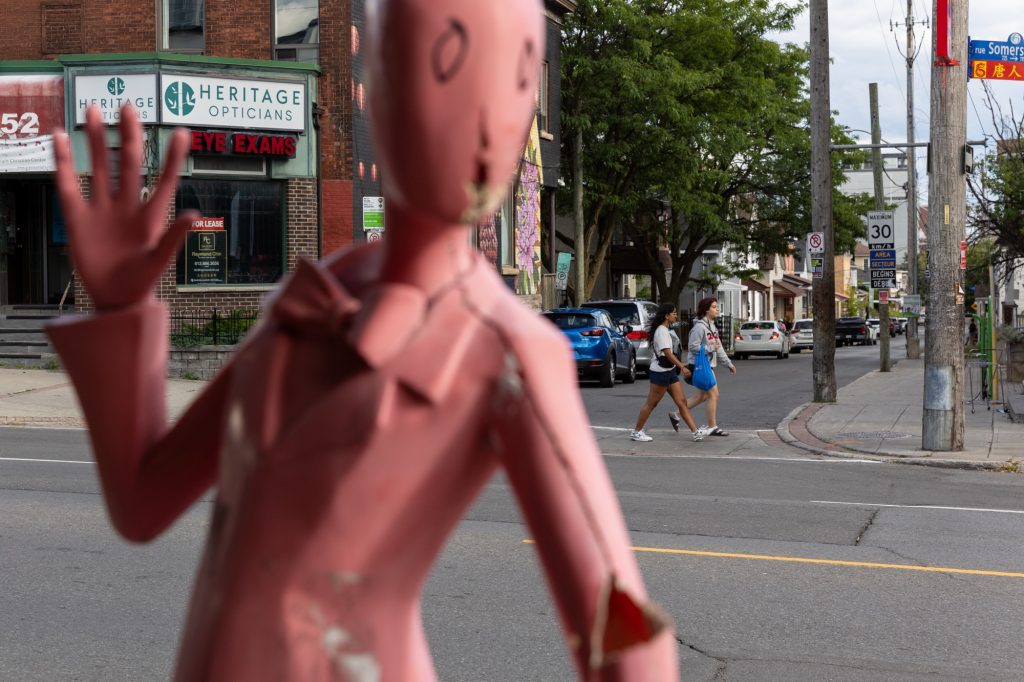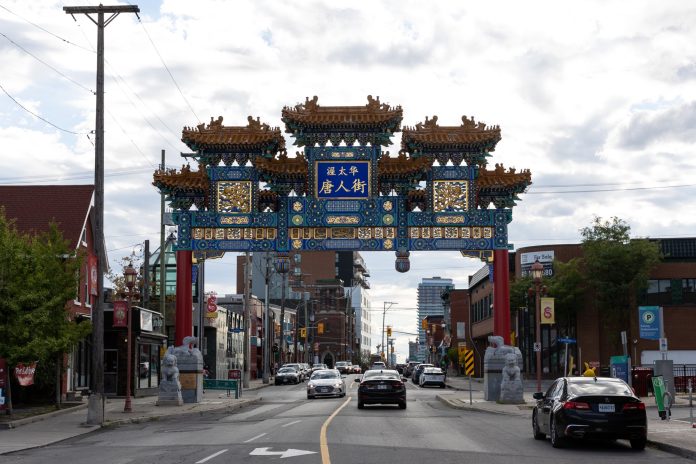Recent years have not been easy on Chinatown, which has seen its many businesses through a pandemic shutdown, rising economic pressures and recently, Ottawa’s own complicated opioid crisis has manifested on its doorsteps.
While not a new issue, the social service crisis is showing itself more clearly on the streets. Residents are finding discarded needles on the ground, more garbage is piling up in parks, and there have been increased instances of harassment.
“I don’t want to downplay the fact that the impact of people who are struggling with opioid addiction is having an impact on the smaller businesses,” said Dalhousie Community Association president Catherine Boucher. “I think they do because they have nowhere to be now that we’ve closed the safe consumption site.”
Since the Somerset West Community Health Centre was forced to close its safe consumption site in the spring, reaction in the community is that the problem is only getting worse.
When announcing new legislation about the pending closure last summer, Ontario Health Minister Sylvia Jones said crime in the area was 250 per cent higher than elsewhere in the city. But now we are learning that isn’t fully true.
CTV Ottawa filed a freedom of information request which found crime was only 14 per cent higher in the Somerset area. Police statistics found that the rate was 5,078.83 per 100,000 residents, compared with 4,430 per 100,000 residents citywide. The province hasn’t confirmed where their initial numbers came from.

During this year’s AMO conference, Somerset Coun. Ariel Troster questioned Jones on the data and what the government plans to do to help the area’s social challenges. The health minister responded by referring to the death of a woman who was killed by a stray bullet outside a Toronto safe consumption site in 2023.
“With the greatest of respect, I never, ever want to have a mother who is killed because she happens to be in the wrong place at the wrong time in front of a consumption site in the province of Ontario,” responded Jones.
Last year, Northwood Recovery opened a safe supply clinic in Wellington West, but moved a few blocks down to Chinatown after public outcry. Somerset residents made it clear they weren’t welcomed there either, with the clinic later announcing it would close. Residents thought that would be the end, but then New Dawn, a clinic with the same mission, opened there instead.
Multiple requests from this paper to the clinic have gone unanswered.
Businesses say they don’t feel safe
Tingting Wang owns and operates TTQ Travel Agency. As a travel agent, Wang said she helps locals in Chinatown overcome hurdles like language barriers on their way to vacations abroad.
She said the clinic in the neighbourhood is her greatest concern as a business owner and is often a challenge for her senior clients who like to visit her office in person.
“It’s not safe,” Wang said. “I don’t feel safe.”
Despite how she feels working on Somerset Street, Wang said she loves her work and enjoys her clients’ vacations vicariously by helping them get there.
“I didn’t go there, but I feel like I was there with them,” Wang said. “So, it’s happy work.”
The opioid crisis is not the only challenge Wang has dealt with since she opened her business in 2015, as she encountered the unique challenge of operating a travel agency through a global pandemic shutdown.
“The Chinatown Business community is very resilient,” said Yukang Li, the executive director of Chinatown’s Business Improvement Association. “It is resilience and hard work that the businesses in Chinatown survived the pandemic. And after the pandemic, I think they only worked harder to remain open, to continue to provide service to the community.”
“For that I really want to show my respect to our business members.”

Beautifying the street
On top of seeing the neighbourhood’s small businesses and mom and pop restaurants through imposing social and economic challenges, Chinatown’s BIA has the added responsibility of keeping their cultural identity alive.
“We maintain our cultural identity by what I would call the hardware and software projects,” Li said.
That hardware is street beautification, which is easy to find around Chinatown. Murals on the walls of buildings, banners on every streetlamp, zodiac signs in the sidewalk, statues, sculptures and even the bright red garbage cans on Somerset Street have cultural imprints. Not to mention the Chinatown Royal Gateway, the iconic Chinese arch near Somerset and Bronson Avenue and the subject of this article’s feature photo. By software, Li means culturally significant community events like the annual Night Market.
While Chinatown still has its fair share of obstacles to overcome, it’s dealing with issues faced citywide. From a bird’s eye view, things could certainly be worse in Chinatown.
“Businesses are struggling post-COVID everywhere, but there’s not a lot of papered windows on Somerset Street,” Boucher said. “I think there’s parts of Bank Street that have more boarded up windows than Somerset.”
But for Li, the added responsibility of keeping the community’s cultural identity alive only adds to the importance of making sure Chinatown continues to endure its many challenges.
“We’re not just a commercial district,” Li said. “We are the concrete presence of Chinese culture in Ottawa, and I believe we add to the multicultural tapestry of Ottawa as a nation’s capital.”
